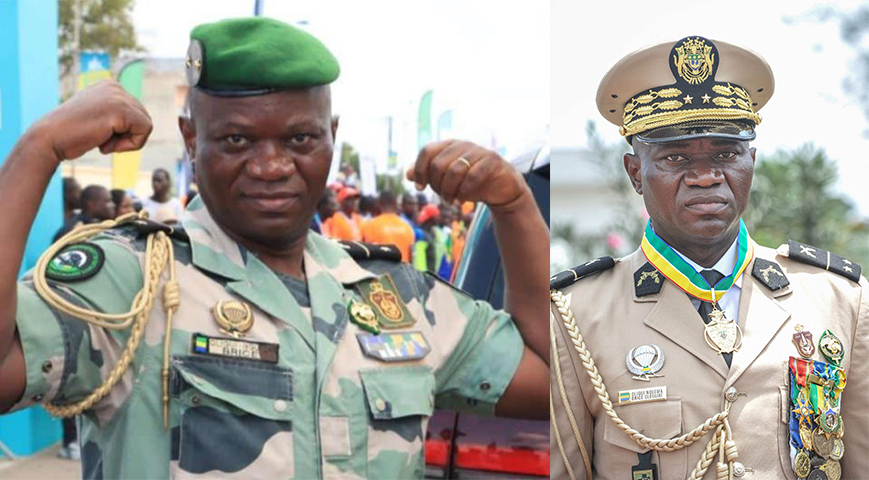The general who overthrew Gabon's 55-year Bongo dynasty last week is set to be sworn in as "transitional president" on Monday, assuming authority for an indeterminate duration.
General Brice Oligui Nguema, the head of the elite Republican Guard, led officers in a military coup against President Ali Bongo Ondimba, the scion of a family that has reigned for more than five decades, on Wednesday.
The removal came only moments after Bongo, 64, was declared the winner of last month's presidential election, which the opposition called a sham.
According to Oligui, the putsch was "bloodless," with no reports of deaths or injuries.

Did you read this?
- Elections promised –
The coup leaders claimed to have destroyed the nation's institutions, annulled the election results, and closed the borders, but then stated that they would reopen them.
Other countries have refused to recognize Oligui as Gabon's legitimate leader, and he is under pressure to outline his plans for restoring civilian authority.
Following the announcement of the coup, his troops gleefully raised Oligui, and he has been seen flanked by generals and colonels in the days since.
He has reiterated his vow to hold "free, transparent, credible, and peaceful elections" without providing a date but stating that a new constitution must first be approved by referendum.

On Friday, he vowed to establish more democratic institutions that respect human rights, but he promised to do so "slowly."
A faction of the old opposition is pressing Oligui to hand over control. Still, many Gabonese appear to be celebrating the overthrow of the Bongo family, with celebrations in the streets of Libreville and Port-Gentil.
Several Western governments and organizations have criticized the coup while recognizing that it differs from others on the continent due to doubts about the referendum's legitimacy.
"Naturally, military coups are not the solution," said European Union foreign policy leader Josep Borrell. "However, we must not forget that elections in Gabon were marred by irregularities."
Since the overthrow, Oligui has spent hours in high-profile conversations with business and religious leaders, unions, political parties, NGOs, diplomats, and journalists, collecting notes and replying in detail to issues and grievances.
Former President Bongo was running for a third term after taking control in 2009 following his father's death, Omar, who ruled Gabon with an iron grip for more than 40 years.
The coup leaders said on Wednesday that he had been placed under home arrest and "retired."

On the other hand, Bongo was able to broadcast a video on social media in which he stated that his son and wife Sylvia had been detained, urging "all friends that we have all over the world... to make noise" on his behalf.
On Friday, national television broadcast rolling photos of the deposed president's son, Noureddin Bongo Valentin, and other jailed officials standing in front of suitcases purportedly stuffed with cash taken from their houses.
The military has accused them of treason, embezzlement, corruption, and forging the president's signature.
Five other African countries have coups in the last three years: Mali, Guinea, Sudan, Burkina Faso, and Niger. Their new overlords have rejected calls for a quick return to the barracks.









